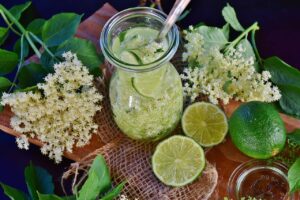
The Natural Medicine Chest
It is believed that everything we need to treat minor ailments such as allergies, skin problems and other minor health issues can be found in a natural state or in nature. So when you have a health condition, firstly see if some plant material, another natural substance or food stuff can help cure the problem. Most people have many of these natural remedies in their cupboard or can easily access them for little cost.
If you are taking any medications or have major health issues, be sure to check with your doctor before trying anything new, especially if you think it may interact with that drug. Often it is better to try to take preventative steps to avoid contracting serious illnesses rather than trying to cure certain conditions later on. By eating healthily, exercising more and avoiding harmful chemicals in our life, we can build up a strong immune system which protects us from disease.
Your Quick Guide to Natural Remedies for Common Health Ailments
|
Health Issue/ Ailment |
Remedy or Treatment |
How to Prepare or Make it |
|
Headache |
Peppermint oil |
Dilute a few drops in a carrier oil and apply to temples |
|
Sore Throat |
Honey and lemon tea |
Mix honey, lemon juice, and hot water, and sip slowly |
|
Upset Stomach |
Ginger tea |
Boil sliced ginger in water, strain, and drink |
|
Insomnia |
Chamomile tea |
Steep chamomile flowers in hot water for 5-10 minutes |
|
Cough |
Honey and warm water |
Mix honey with warm water and drink |
|
Sunburn |
Aloe vera gel |
Apply aloe vera gel directly to the affected area |
|
Common Cold |
Echinacea |
Take echinacea supplements as directed on the package |
|
Allergies |
Neti pot or nasal irrigation device |
Use a neti pot to rinse nasal passages with saline solution |
|
Muscle pain |
Arnica cream |
Apply arnica cream to the affected area and massage gently |
|
Stress |
Lavender essential oil |
Add a few drops to a diffuser or mix with a carrier oil for massage |
|
Acne |
Tea tree oil |
Dilute tea tree oil with water and apply to affected areas with a cotton ball |
|
Digestive Issues |
Peppermint tea |
Steep peppermint leaves in hot water for 5-10 minutes and drink |
|
Nausea |
Ginger candies |
Suck on ginger candies or chew on a piece of fresh ginger |
|
Dry Skin |
Coconut oil |
Apply coconut oil directly to the skin and massage gently |
|
Bad Breath |
Parsley |
Chew on fresh parsley leaves to freshen breath |
|
Hangover |
Coconut water |
Drink coconut water to rehydrate and replenish electrolytes |
|
Joint Pain |
Turmeric |
Mix turmeric powder with warm milk and drink |
|
Anxiety |
Valerian root |
Take valerian root supplements as directed on the package |
|
Allergic skin reactions |
Calendula cream |
Apply calendula cream to the affected area for soothing relief |
|
Fatigue |
Green tea |
Steep green tea leaves in hot water for 3-5 minutes and drink |
How Does Our Body Fight Off Infections Naturally?
Our body is an incredible machine, equipped with a sophisticated defense system designed to protect us from harmful pathogens, including viruses and bacteria. While we often rely on medical interventions, it’s important to understand how our immune system naturally works to keep us healthy. Let’s dive into the key players and mechanisms involved in fighting off infections naturally.
-
The Immune System: Our First Line of Defense
At the core of our body's defense against infections is the immune system. This complex network of cells, tissues, and organs works together to identify and eliminate harmful invaders. It consists of two main types of immunity:
- Innate Immunity (Non-specific): This is the body’s initial response to an infection. It includes physical barriers like the skin, mucous membranes, and natural chemicals like stomach acid, all of which prevent the entry of pathogens. If they manage to breach these defenses, our body’s first responders, such as white blood cells (phagocytes), work to neutralize them.
- Adaptive Immunity (Specific): Once the innate immune system has been activated, the body’s adaptive immune response takes over. This system is highly specialized, learning to recognize specific pathogens and develop a targeted defense. Key players in adaptive immunity include T cells and B cells, which remember previous invaders and create antibodies to fight off future infections more efficiently.
2. How the Body Responds to Viral Infections
Viruses work by entering our cells and hijacking the cellular machinery to replicate themselves. The body’s natural response to viral infections involves a series of complex actions:
- Recognition and Defense: When a virus enters the body, it is often recognized by cells of the immune system, such as dendritic cells. These cells alert the rest of the immune system to the presence of an infection and send signals to other immune cells.
- Interferons: These are signaling proteins produced by infected cells to protect nearby cells from viral replication. They also help activate immune cells like natural killer (NK) cells, which can destroy infected cells.
- T Cells: Cytotoxic T cells are able to recognize and destroy cells that are infected with the virus, preventing further spread. Helper T cells coordinate the immune response and help B cells produce antibodies.
- Antibodies: B cells produce antibodies that are specific to the virus. These antibodies bind to the virus and neutralize it, making it easier for the immune system to clear it from the body.
-
How the Body Fights Bacterial Infections
Bacteria, unlike viruses, are living organisms that can multiply outside of cells. The immune system employs several methods to fight bacterial infections:
- Phagocytosis: When bacteria invade, phagocytes (such as neutrophils and macrophages) recognize and engulf the bacteria. These immune cells then break down the bacteria, neutralizing the threat.
- Inflammation: Infected tissues become inflamed as the immune system sends white blood cells and other immune molecules to the site of infection. This process helps contain the bacteria and brings more immune cells to fight the infection.
- Antibodies and Complement System: Like with viruses, B cells produce antibodies that target specific bacterial invaders. Additionally, the complement system, a group of proteins in the blood, helps to destroy bacteria by directly attacking their cell walls and signaling immune cells to do the same.
-
How Lifestyle and Nutrition Support Immune Function
While the body’s immune system is well-equipped to fight off infections, certain lifestyle habits and nutritional choices can strengthen its ability to do so:
- Nutrition: A diet rich in vitamins and minerals, particularly Vitamin C, Vitamin D, Zinc, and Probiotics, supports immune health. Nutrients like these help enhance the function of immune cells and promote a balanced immune response.
- Sleep: Adequate sleep is essential for maintaining immune function. Poor sleep can impair the production of cytokines, proteins that help regulate immune responses.
- Exercise: Regular moderate exercise boosts circulation, helping immune cells move more efficiently through the body to detect and eliminate pathogens.
- Stress Management: Chronic stress can suppress the immune system by lowering the production of important immune-regulating hormones. Practices like meditation, yoga, and mindfulness can help manage stress and keep the immune system strong.
-
The Role of Natural Supplements in Supporting Immunity
In addition to a healthy lifestyle, certain natural supplements can support the immune system, including:
- Echinacea: Known for its potential to reduce the severity and duration of cold symptoms.
- Elderberry: Often used to support immune function, especially during flu season.
- Garlic: Contains compounds that have been shown to have antibacterial and antiviral properties.
- Vitamin C and Zinc: Well-known for their ability to support immune function and reduce the duration of infections.
-
Conclusion
Our bodies have an incredible, built-in defense mechanism to fight off viruses and bacteria naturally. From the physical barriers that keep pathogens out to the complex immune responses that identify and eliminate threats, our immune system is constantly working to protect us. By supporting our health through a balanced diet, regular exercise, and proper sleep, we can enhance our immune function and help our bodies defend against infections more effectively.
To find out more in depth information about this topic go to our blog page - https://universalorganics.com.au/natural-immune-system/

Lemon Myrtle
The leaf of lemon myrtle, an Australian native shrub contains essential oils, that display antibacterial and anti fungal activity and as such can be used to treat many common infections.
The leaves can be dried and used for lemon myrtle tea and in cooking . Can be use in natural soaps, skin care and home cleaning products.
Highlights
Peppermint
Peppermint is great for insomnia, cramps, dizziness. . as well as,for the common cold, cough, inflammation of the mouth and throat, sinus infections, and respiratory infections. It is popular for the treatment of digestive problems including heartburn, nausea, vomiting, morning sickness, irritable bowel syndrome, upset stomach, diarrhoea and gas. Peppermint is used mostly as a flavoring in the form of a tea.
Highlights


Chamomile
Chamomile is used to treat irritation from chest colds, slow-healing wounds, abscesses, gum inflammation, and skin conditions such as psoriasis, eczema and chickenpox. The oil can be used for nappy rash by mixing 3 drops of oil in 6 tsp of almond oil.
Chamomile tea is commonly used to treat insomnia, indigestion, morning sickness and baby colic.
Highlights
You Are What You Eat! Many People believe that the type of foods you eat or don't eat can determine what ailments you get.
Coconut Oil
Coconut Oil is fast becoming well recognized as a food item that is good for many different type of ailments or conditions. It has a multitude of health benefits, which include improved skin condition, hair care, improved digestion and immunity against a host of infections and diseases. Other ways to use coconut oil is to aid in weight loss, improve brain function, and improved dental health. Regular brushing of your teeth with the oil mixed with carb -soda is wonderful for improving the enamel coating of your teeth and helps prevents disease.
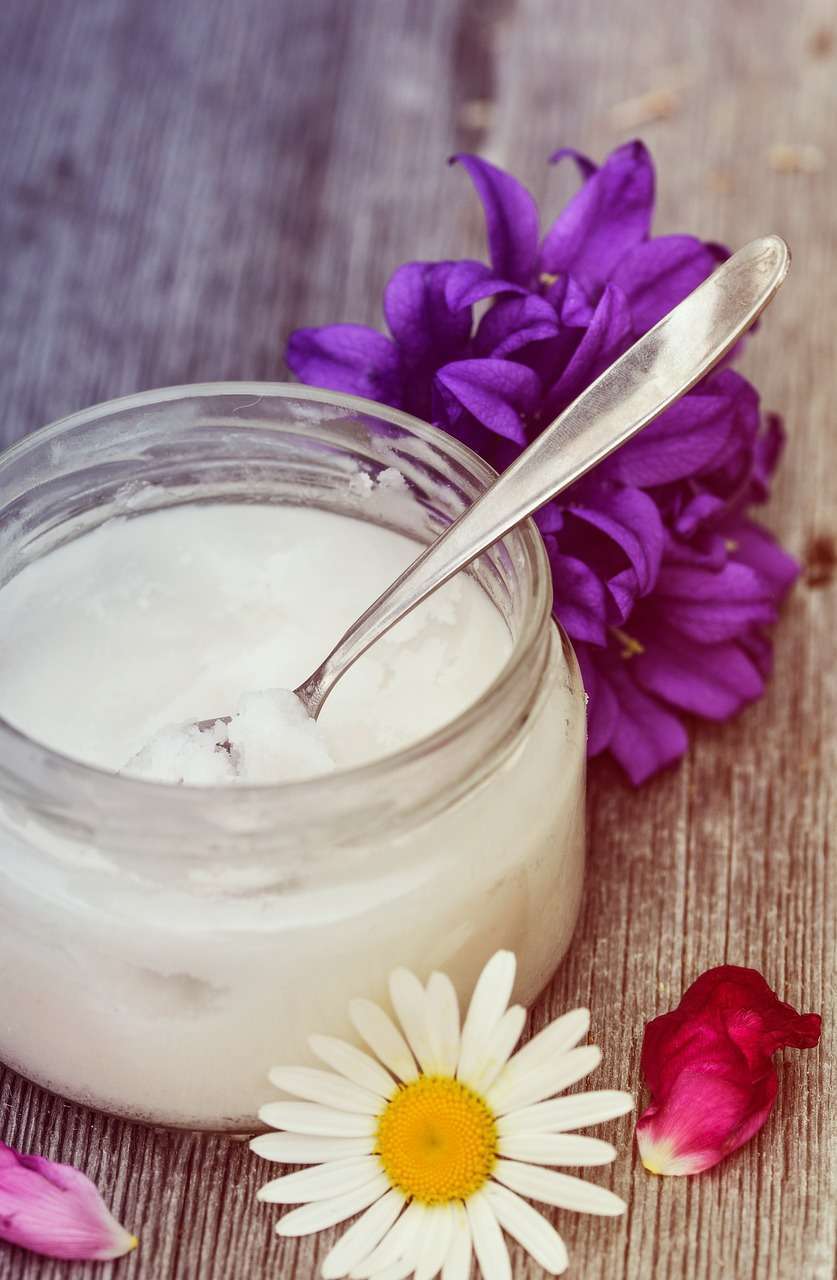
Other Herbal Remedies
Many of the common herbal remedies are made from the use of plants that many people have already in their garden. Some popular herbs are echinacea, lavender, comfrey, calendula, aloe vera and chamomile. (See corresponding pictures of these plants below)






Echinacea is commonly used to enhance the immune system; lavender oil for asthma and headaches; comfrey for the treatment of wounds, acne, boils and fungal skin infections; calendula cream is great for bites, stings and nappy rash; aloe vera is known for the treatment of sunburn, minor burns and warts; and feverfew can help to reduce fever and to treat headaches, arthritis and digestive problems.
Here's some more! Remedies
More Natural Remedies


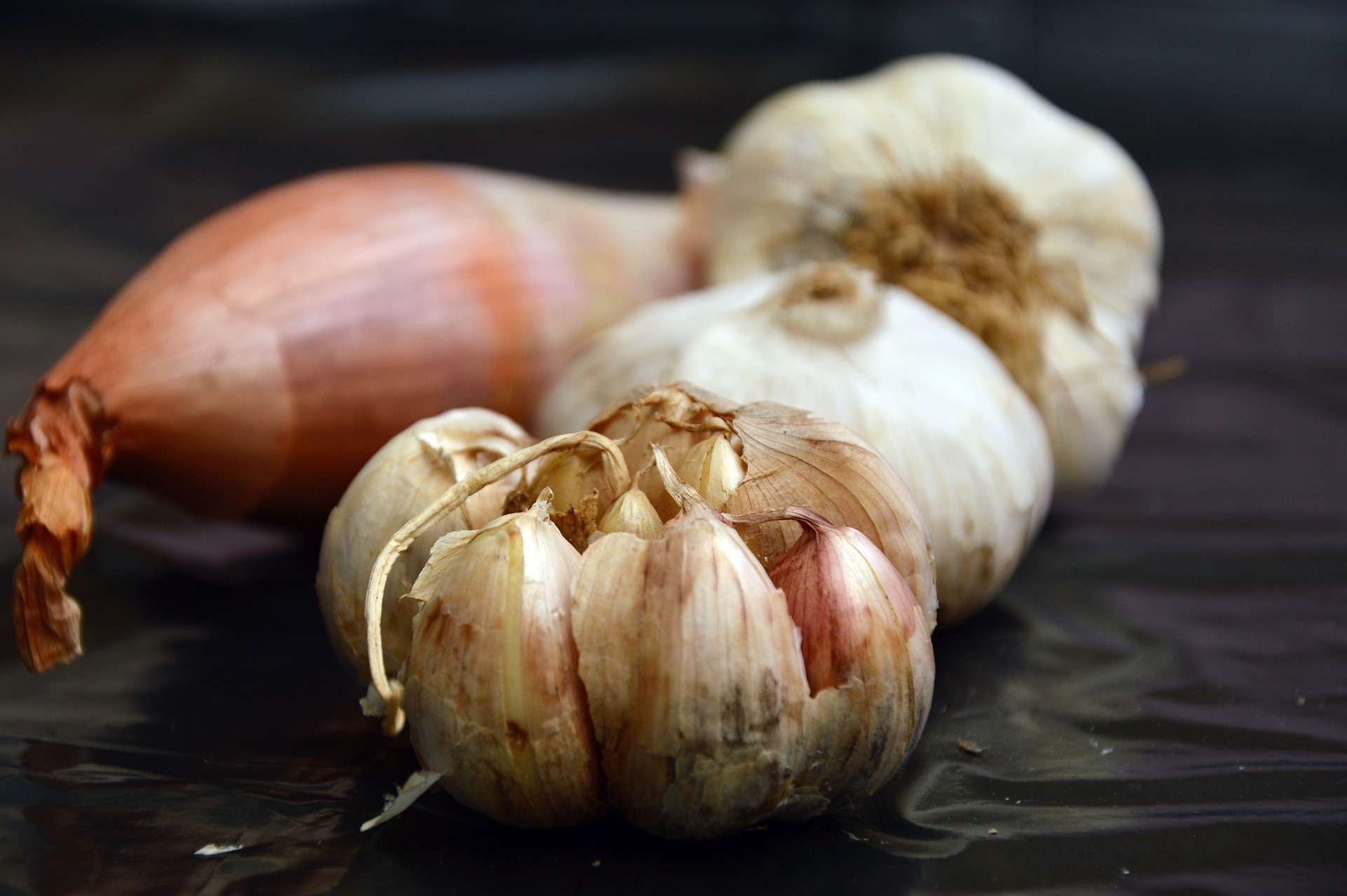

Rosemary essential oil is great for the relief of muscular aches and pain and can be used in soaps, perfumes and cleaning products. Turmeric is believed to aid with cancer, arthritis, Alzheimer's and psoriasis . Garlic is good for colds and flu while ginger is great for digestive problems. Like all remedies this is not to be taken as medical advice but to be used as a preventative measure and further research is advised depending on your own medical condition. Be sure to always ask your doctor before starting any new treatment.
And Even More Natural Remedies




Honey is great for sore throats, colds and flu or mixed with lemon and ginger for upset stomachs. Cinnamon is great to help lose weight and known to assist balancing glucose levels in diabetics. Clove oil is very popular for tooth ache.
I'm back with more remedies! You just can't get rid of me.
Common Foods For Medicine
We often think of food as something we need to enjoy and as such we tend to go for processed foods high in sugar and fat. We forget that food is also vital for our good health, to help prevent disease and to build up our immune system. What you may not know is that all the metabolic pathways or reactions that occur in our body have specific molecules called enzymes and co- factors that need to be present in the body to make these reactions occur. Many of these co-factors are the vitamins and minerals we get from our food, such as magnesium, copper, iron and some vitamins such as the B group. So as you can see most of these compounds are derived from the food we eat, which are found mostly in raw, fresh fruit and vegetables. So its like putting cooking oil in your car and expecting it to run smoothly. Eventually it is going to break down. We need to provide our body with the right fuel to get it to run optimally.
Garlic
Garlic is a natural antibiotic and is great for stimulating the immune system. It is good for colds, flu and aiding in weight loss. Other uses are to help with cardiovascular disease and high blood pressure.
Aloe Vera
Aloe Vera is great to cleanse, detoxify and alkalize the body from too much acidic food intake. It is also known to boost the immune system and aid with asthma, arthritis, diabetes and cardiovascular health.
Lemon
Lemons help alkalize the body and it is a stimulant for the liver. It is high in vitamin C and flavonoids that help fight against infections like the flu and colds. Great for digestion, arthritis, hair and skin.
Health Benefits of Some Common Healing Herbs
Exploring the Properties and Benefits of Comfrey!
Comfrey, scientifically known as Symphytum officinale, is a perennial herb that has been used for centuries due to its various properties and health benefits. This article aims to shed light on the remarkable qualities of comfrey and its potential positive impact on our well-being.
Properties of Comfrey:
Comfrey is renowned for its high content of allantoin, a compound known for its ability to promote cell regeneration and wound healing. Additionally, it contains essential nutrients such as vitamins A, C, and B12, as well as minerals like calcium, potassium, and phosphorus. These properties make comfrey a valuable herb with numerous potential health benefits.
Health Benefits of Comfrey:
1. Wound Healing: Comfrey's allantoin content accelerates the healing process of wounds, cuts, and bruises. It aids in cell growth and tissue repair, reducing the time required for recovery.

2. Anti-inflammatory Effects: Comfrey possesses anti-inflammatory properties that can help alleviate pain and reduce swelling associated with conditions like arthritis, sprains, and strains.
3. Skin Health: Comfrey's regenerative properties make it beneficial for skin health. It can be used topically to soothe dry, irritated skin, and may even help with conditions such as eczema and psoriasis.
4. Bone and Joint Health: Comfrey has traditionally been used to support bone and joint health. It is believed to aid in the healing of fractures, sprains, and osteoarthritis due to its potential to stimulate bone and cartilage growth.
5. Respiratory Support: Comfrey has been used in herbal remedies to support respiratory health. It may help alleviate symptoms of coughs, bronchitis, and other respiratory conditions.
Precautions:
While comfrey offers numerous potential health benefits, it is important to exercise caution when using it. Comfrey contains pyrrolizidine alkaloids (PAs), which can be toxic to the liver when consumed in large amounts or over an extended period. Therefore, internal use of comfrey is not recommended. However, external use, such as in the form of creams or ointments, is generally considered safe.
Comfrey, with its remarkable properties and potential health benefits, has been valued for centuries. From wound healing to anti-inflammatory effects, this herb offers a range of potential advantages. However, it is crucial to use comfrey responsibly and consult with a healthcare professional before incorporating it into your wellness routine.
Remember, this article provides general information and should not replace professional medical advice. If you have any concerns or specific health conditions, it is always best to consult with a healthcare professional as everybody's health issues and medications differ.

Exploring the Properties and Health Benefits of Milk Thistle
Milk thistle, scientifically known as Silybum marianum, is a flowering herb that has been used for centuries due to its remarkable properties and potential health benefits. This plant, native to the Mediterranean region, is renowned for its distinctive purple flowers and spiky leaves. Let's delve into the properties and health benefits of milk thistle.
Liver Support and Detoxification:
One of the primary reasons milk thistle has gained popularity is its ability to support liver health. The active compound in milk thistle, called silymarin, is believed to have antioxidant and anti-inflammatory properties that help protect liver cells from damage caused by toxins, alcohol, and certain medications. It may also aid in the regeneration of liver tissue.
Antioxidant and Anti-inflammatory Effects:
Milk thistle contains potent antioxidants that help combat oxidative stress and reduce inflammation in the body. These antioxidants, including silymarin, help neutralize harmful free radicals, which can contribute to chronic diseases and aging. By reducing inflammation, milk thistle may potentially support overall health and well-being.
Digestive Health:
Milk thistle has been traditionally used to promote digestive health. It is believed to stimulate bile production, which aids in the digestion and absorption of fats. Additionally, milk thistle may help alleviate symptoms of indigestion, bloating, and other digestive discomforts.
Cholesterol Management:
Some studies suggest that milk thistle may have a positive impact on cholesterol levels. Research indicates that silymarin may help lower LDL (bad) cholesterol levels while increasing HDL (good) cholesterol levels. However, more research is needed to fully understand the extent of milk thistle's effects on cholesterol management.
Potential Anti-cancer Properties:
Preliminary studies have shown promising results regarding milk thistle's potential anti-cancer properties. Silymarin, the active compound in milk thistle, has demonstrated anti-cancer effects in laboratory studies, particularly in relation to certain types of cancer cells. However, further research is required to determine its efficacy in human trials.
Milk thistle, with its liver-supporting properties, antioxidant effects, and potential health benefits, has become a popular herbal supplement. While it is generally considered safe for most individuals, it is always advisable to consult with a healthcare professional before incorporating any new supplement into your routine. As with any herbal remedy, it is important to remember that individual results may vary.
Incorporating milk thistle into a healthy lifestyle, alongside a balanced diet and regular exercise, may offer potential benefits for liver health, digestion, and overall well-being. As always, it's best to consult with a healthcare professional for personalized advice.
Unveiling the Health Benefits of Stinging Nettle:
Stinging nettle, scientifically known as Urtica dioica, may be infamous for its prickly nature, but it also holds a treasure trove of health benefits. This perennial plant has been used for centuries in traditional medicine due to its numerous properties and potential therapeutic effects. Let's explore some of the remarkable health benefits that stinging nettle has to offer.
1. Nutritional Powerhouse:
Stinging nettle is rich in essential nutrients, including vitamins A, C, and K, as well as minerals like iron, calcium, and magnesium. These nutrients contribute to overall health and well-being, supporting various bodily functions.
2. Anti-inflammatory Properties:
One of the key benefits of stinging nettle is its potent anti-inflammatory properties. It contains compounds like flavonoids and carotenoids that help reduce inflammation in the body. This makes it a potential natural remedy for conditions such as arthritis, allergies, and inflammatory bowel diseases.
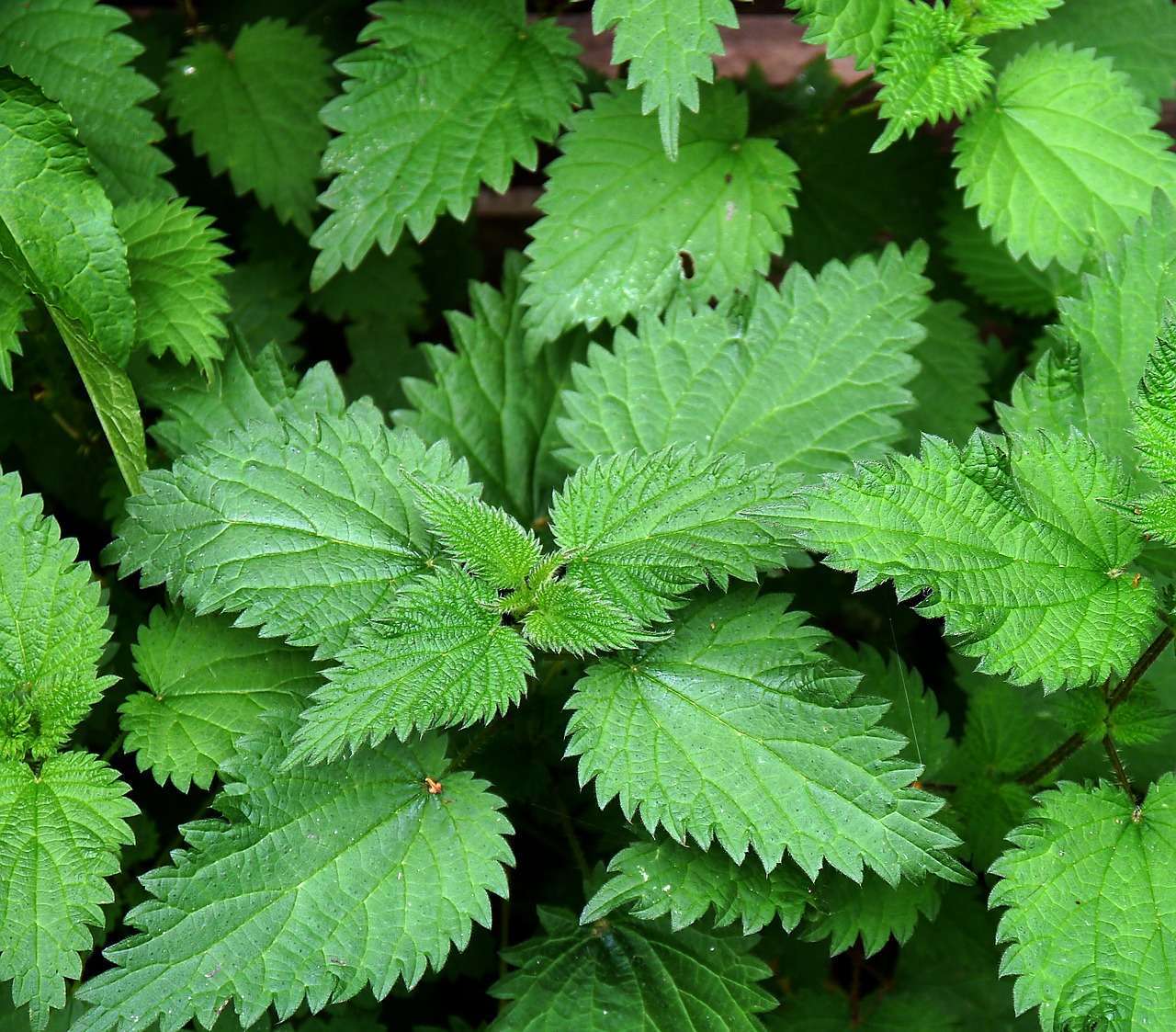
3. Allergy Relief:
Stinging nettle has long been used as a natural remedy for allergies. It may help alleviate symptoms like sneezing, itching, and congestion by inhibiting the release of histamine, the compound responsible for allergic reactions. Consuming nettle tea or supplements during allergy season may provide relief for some individuals.
4. Urinary Health:
Stinging nettle has diuretic properties, which means it can increase urine production and promote healthy kidney function. It may help flush out toxins, reduce water retention, and support urinary tract health. However, it's important to consult a healthcare professional before using stinging nettle for any specific health condition.
5. Skin Health:
Topical applications of stinging nettle, such as creams or ointments, have been used to soothe skin irritations, including eczema and insect bites. Its anti-inflammatory and antihistamine properties may help reduce itching and redness, providing relief for certain skin conditions.
Stinging nettle, despite its prickly reputation, offers a range of potential health benefits. From its nutritional value to its anti-inflammatory and allergy-relieving properties, this versatile plant has been valued in traditional medicine for centuries. However, it's important to note that individual experiences may vary, and it's always advisable to consult a healthcare professional before incorporating stinging nettle into your wellness routine.
Remember, nature has provided us with a wealth of resources, and stinging nettle is just one example of the remarkable healing potential found in plants. Embrace the power of nature and explore the benefits that stinging nettle may offer for your health and well-being.
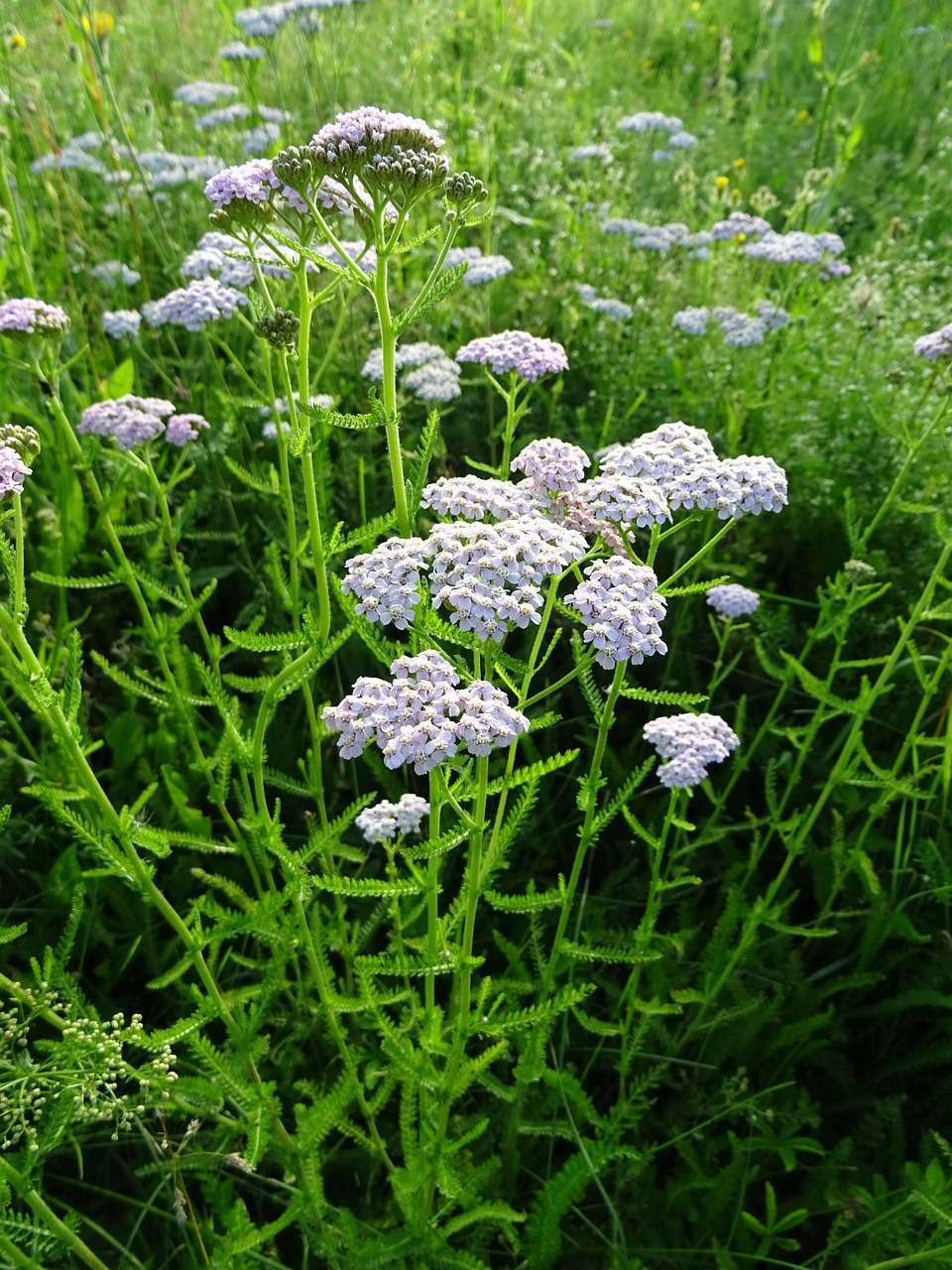
The Properties and Health Benefits of Yarrow:
Yarrow, scientifically known as Achillea millefolium, is a versatile herb that has been used for centuries due to its numerous properties and health benefits. This perennial plant is native to Europe and Asia but can now be found in various parts of the world.
One of the notable properties of yarrow is its anti-inflammatory nature. It contains compounds like flavonoids and sesquiterpene lactones, which help reduce inflammation in the body. This makes yarrow a popular choice for treating conditions such as arthritis, rheumatism, and digestive disorders.
Yarrow is also known for its antimicrobial properties. It contains essential oils like camphor and eucalyptol, which have been found to have antibacterial and antifungal effects. This makes yarrow useful in treating minor wounds, cuts, and skin infections.
Furthermore, yarrow has been traditionally used to support digestion. It stimulates the production of digestive juices, aiding in the breakdown of food and improving nutrient absorption. It can also help relieve symptoms of indigestion, bloating, and flatulence.
In addition to its medicinal properties, yarrow is often used in herbal teas and tinctures for its calming and relaxing effects. It is believed to help reduce anxiety, stress, and promote restful sleep.
It's important to note that while yarrow has many potential health benefits, it may interact with certain medications or cause allergic reactions in some individuals. As with any herbal remedy, it's advisable to consult with a healthcare professional before incorporating yarrow into your routine.
In conclusion, yarrow is a versatile herb with anti-inflammatory, antimicrobial, and digestive-supporting properties. Whether used topically or consumed as a tea, yarrow offers a range of potential health benefits. However, it's always best to seek professional advice to ensure its safe and appropriate use.
Properties and Health Benefits of Lemon Verbena:
Lemon verbena, scientifically known as Aloysia citrodora, is a fragrant herb that is widely recognized for its refreshing lemony aroma and taste. This herb is native to South America and has been used for centuries due to its various properties and health benefits.
One of the notable properties of lemon verbena is its high concentration of antioxidants. Antioxidants help protect the body against free radicals, which are unstable molecules that can cause damage to cells and contribute to various health issues. By incorporating lemon verbena into your diet, you can potentially boost your antioxidant intake and support overall well-being.

Additionally, lemon verbena is known for its potential anti-inflammatory properties. Inflammation is a natural response by the body, but chronic inflammation can lead to various health conditions. Lemon verbena contains compounds that may help reduce inflammation, which could be beneficial for individuals dealing with inflammatory conditions.
Moreover, lemon verbena has been traditionally used to aid digestion. It is believed to have carminative properties, which means it may help relieve digestive discomfort, such as bloating and gas. Some people also use lemon verbena as a natural remedy for indigestion and stomach cramps.
Furthermore, lemon verbena is often used to promote relaxation and reduce stress. Its pleasant aroma has a calming effect on the mind and can be used in aromatherapy to alleviate anxiety and promote better sleep. Some individuals also enjoy lemon verbena tea as a soothing beverage to unwind after a long day.
It's worth noting that while lemon verbena offers potential health benefits, it's always advisable to consult with a healthcare professional before incorporating it into your routine, especially if you have any existing medical conditions or are taking medications.
In conclusion, lemon verbena is a versatile herb that not only adds a delightful lemony flavor to culinary creations but also offers potential health benefits. From its antioxidant properties to its potential anti-inflammatory and digestive benefits, lemon verbena can be a valuable addition to a healthy lifestyle. Whether enjoyed as a tea or used in cooking, this herb is a wonderful way to enhance both the taste and potential health benefits of your meals.

Properties and Health Benefits of Ginkgo:
Ginkgo, scientifically known as Ginkgo biloba, is a unique and ancient tree species that has been used in traditional medicine for centuries. It is renowned for its remarkable properties and potential health benefits. Let's explore some of them:
1. Cognitive Enhancement: Ginkgo is often associated with improved cognitive function and memory enhancement. It is believed to enhance blood flow to the brain, which may help support cognitive performance and reduce age-related cognitive decline.
2. Antioxidant Effects: Ginkgo contains powerful antioxidants that help protect the body against oxidative stress caused by harmful free radicals. These antioxidants may contribute to various health benefits, including reducing inflammation and supporting overall well-being.
3. Circulation Support: Ginkgo has been traditionally used to support healthy blood circulation. It is believed to help dilate blood vessels, improve blood flow, and reduce the risk of blood clot formation. This property may be beneficial for individuals with conditions related to poor circulation, such as leg pain or Raynaud's disease.
4. Eye Health: The antioxidants found in Ginkgo may also have positive effects on eye health. Some studies suggest that Ginkgo extract may help protect against age-related macular degeneration (AMD) and improve vision in individuals with glaucoma.
5. Anti-Inflammatory Properties: Ginkgo has been studied for its potential anti-inflammatory effects. It may help reduce inflammation in the body, which is associated with various chronic conditions, including arthritis and cardiovascular diseases.
It's important to note that while Ginkgo has shown promising results in some studies, further research is still needed to fully understand its benefits and potential side effects. As with any herbal supplement, it's advisable to consult with a healthcare professional before incorporating Ginkgo into your routine, especially if you have any underlying health conditions or are taking medications.
Ginkgo is a fascinating herb with a range of potential health benefits. From cognitive enhancement to circulation support and antioxidant effects, it has captured the interest of researchers and health enthusiasts alike. However, it's always wise to approach herbal remedies with caution and seek professional advice when considering their use.
Properties and Health Benefits of Gotu Kola:
Gotu Kola, scientifically known as Centella asiatica, is a herbaceous plant that has been used for centuries in traditional medicine. It is native to Asia and is highly regarded for its numerous health benefits. Let's explore some of its properties and the potential advantages it offers.
1. Anti-inflammatory properties: Gotu Kola contains compounds that possess anti-inflammatory properties. These compounds may help reduce inflammation in the body, making it beneficial for conditions like arthritis, joint pain, and skin inflammation.
2. Cognitive enhancement: Gotu Kola has been traditionally used to support brain health and enhance cognitive function. It is believed to improve memory, concentration, and overall mental clarity. Some studies suggest that it may even have a positive impact on age-related cognitive decline.
3. Wound healing: The herb is known for its wound healing properties. It is believed to stimulate the production of collagen, which is essential for skin regeneration and the healing of wounds. Gotu Kola can be used topically as a cream or ointment to aid in the healing of cuts, burns, and other skin injuries.
4. Anxiety and stress relief: Gotu Kola has been used as an adaptogen, a substance that helps the body adapt to stress. It is believed to have a calming effect on the nervous system, helping to reduce anxiety and promote relaxation.

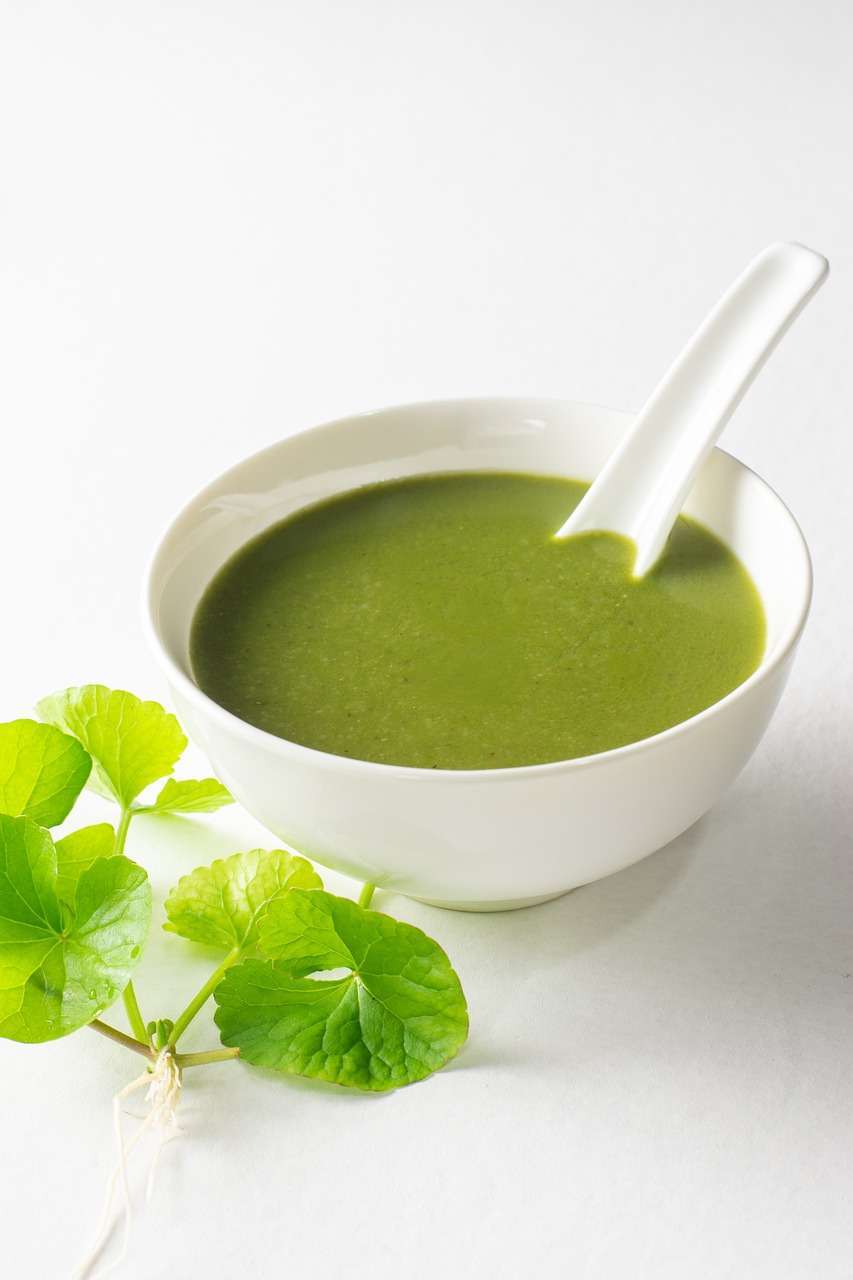
5. Skin health: Due to its antioxidant properties, Gotu Kola is often used in skincare products. It may help protect the skin from free radicals, promote collagen synthesis, and improve the overall appearance of the skin, including reducing the appearance of scars and stretch marks.
It's important to note that while Gotu Kola has a long history of traditional use, further scientific research is needed to fully understand its potential benefits and any potential side effects. As with any herbal supplement, it's always advisable to consult with a healthcare professional before incorporating it into your routine, especially if you have any underlying health conditions or are taking medications.
Gotu Kola is a herb with a range of potential health benefits, including anti-inflammatory properties, cognitive enhancement, wound healing, anxiety relief, and skin health. Its traditional use and growing scientific interest make it an intriguing herb to explore further.

The Amazing Properties and Benefits of Aloe Vera!
Aloe vera, a succulent plant known for its thick and fleshy leaves, has been used for centuries for its medicinal properties. This versatile plant offers a wide range of health benefits and is a popular ingredient in various skincare and health products.
Properties of Aloe Vera:
Aloe vera contains over 75 active compounds, including vitamins, minerals, enzymes, amino acids, and antioxidants. The gel found in its leaves is rich in nutrients and has soothing and healing properties.
Health Benefits of Aloe Vera:
1. Skin Health: Aloe vera gel is widely recognized for its skincare benefits. It can help moisturize and nourish the skin, promoting a healthy and youthful appearance. It is also known to soothe sunburns, reduce inflammation, and alleviate skin conditions like eczema and psoriasis.
2. Digestive Aid: Aloe vera juice can aid in digestion and promote a healthy gut. It may help alleviate symptoms of acid reflux, irritable bowel syndrome (IBS), and other digestive disorders. Aloe vera's natural enzymes can also assist in breaking down food and improving nutrient absorption.
3. Immune Support: Aloe vera contains antioxidants that help boost the immune system. Regular consumption of aloe vera juice or supplements may help strengthen the body's defenses against infections and diseases.
4. Wound Healing: Aloe vera gel has excellent wound healing properties. It can be applied topically to minor cuts, burns, and abrasions to promote faster healing and reduce the risk of infection.
5. Oral Health: Aloe vera can be beneficial for oral health. It has antimicrobial properties that can help combat bacteria responsible for gum disease and cavities. Aloe vera mouthwashes or gels can be used to maintain oral hygiene and promote healthy gums.
Aloe vera is a remarkable plant with numerous properties and health benefits. From skincare to digestive health and immune support, its versatile nature makes it a valuable addition to your daily routine. Whether used topically or consumed as a juice or supplement, aloe vera can contribute to your overall well-being.
Discover the Healing Powers of Feverfew: A Natural Remedy for Various Ailments
Feverfew, scientifically known as Tanacetum parthenium, is a medicinal herb that has been used for centuries due to its remarkable properties and health benefits. This daisy-like plant, native to Europe, is renowned for its ability to alleviate various ailments and promote overall well-being. Let's delve into the properties and health benefits of feverfew.
Properties:
Feverfew contains several active compounds, including parthenolide, which is believed to be responsible for its medicinal properties. Parthenolide possesses anti-inflammatory, antioxidant, and antimicrobial properties, making feverfew a valuable herb for natural healing.

Health Benefits:
1. Migraine Relief: Feverfew has gained popularity for its potential to reduce the frequency and intensity of migraines. It is believed to inhibit the release of certain chemicals in the brain that trigger migraines, providing relief to sufferers.
2. Anti-Inflammatory Effects: The anti-inflammatory properties of feverfew make it beneficial for managing conditions such as arthritis and joint pain. It may help reduce inflammation and alleviate associated discomfort.
3. Digestive Aid: Feverfew has been traditionally used to support digestive health. It may help relieve symptoms of indigestion, bloating, and stomachaches, promoting a healthy digestive system.
4. Skin Health: Topical application of feverfew extracts or creams may help soothe skin irritations, such as eczema and psoriasis. Its anti-inflammatory and antioxidant properties can assist in reducing redness and inflammation.
5. Menstrual Support: Some women find relief from menstrual discomfort and symptoms like cramps and headaches by incorporating feverfew into their routine. Its potential to regulate hormonal imbalances may contribute to a more comfortable menstrual cycle.
Feverfew, with its impressive properties and health benefits, has become a popular natural remedy for various ailments. From migraine relief to digestive support and skin health, this herb offers a range of potential advantages. However, it's important to consult with a healthcare professional before incorporating feverfew into your routine, especially if you have any existing medical conditions or are taking medications.
Remember, while feverfew has shown promise in promoting well-being, individual results may vary. Embrace the power of nature and consider exploring the potential benefits of feverfew for your health journey.

Discover the Healing Power of Arnica: Properties and Health Benefits
Arnica, a vibrant yellow flowering plant native to Europe, has been used for centuries for its remarkable healing properties. This herb, scientifically known as Arnica montana, is renowned for its numerous health benefits. In this article, we will explore the properties and health benefits of arnica.
Properties of Arnica:
Arnica contains several active compounds, including sesquiterpene lactones, flavonoids, and essential oils. These compounds contribute to its anti-inflammatory, analgesic (pain-relieving), and antimicrobial properties. Arnica is available in various forms, including creams, gels, oils, and homeopathic preparations.
Health Benefits of Arnica:
1. Pain Relief: Arnica is widely used topically to alleviate pain and reduce inflammation associated with bruises, sprains, and muscle soreness. Its analgesic properties help soothe discomfort and promote faster healing.
2. Anti-inflammatory Effects: The anti-inflammatory properties of arnica make it an excellent natural remedy for reducing swelling and inflammation caused by injuries or arthritis. Applying arnica topically can help ease joint pain and stiffness.
3. Wound Healing: Arnica stimulates blood flow to the affected area, which aids in the healing process. It can be used to treat minor wounds, cuts, and burns, promoting faster recovery and reducing the risk of infection.
4. Bruise Reduction: Arnica is often used to minimize the appearance of bruises and speed up their healing. Applying arnica gel or cream to the affected area can help reduce discoloration and swelling.
5. Skin Care: Arnica possesses antimicrobial properties that make it beneficial for various skin conditions, including acne, eczema, and insect bites. It can help soothe irritation, reduce redness, and promote healthier skin.
Precautions and Considerations:
While arnica is generally safe for external use, it is important to avoid applying it to broken skin or open wounds. Additionally, some individuals may experience allergic reactions to arnica. It is advisable to perform a patch test before using arnica products and consult a healthcare professional if you have any concerns or medical conditions.
Arnica, with its remarkable properties and health benefits, has become a popular natural remedy for pain relief, inflammation reduction, wound healing, bruise reduction, and skincare. Whether you choose to use arnica in the form of creams, gels, or oils, it is essential to follow the recommended guidelines and consult a healthcare professional if needed. Embrace the healing power of arnica and experience its natural wonders.
Discover the Power of Ashwagandha: Properties and Health Benefits.
Ashwagandha, also known as Withania somnifera, is an ancient medicinal herb that has been used for centuries in Ayurvedic medicine. This powerful herb is known for its numerous properties and health benefits, making it a popular choice for those seeking natural remedies. Let's explore the key properties and health benefits of ashwagandha.
Properties of Ashwagandha:
1. Adaptogenic: Ashwagandha is classified as an adaptogen, which means it helps the body adapt to stress and promotes overall balance. It supports the body's ability to cope with physical, mental, and emotional stressors.
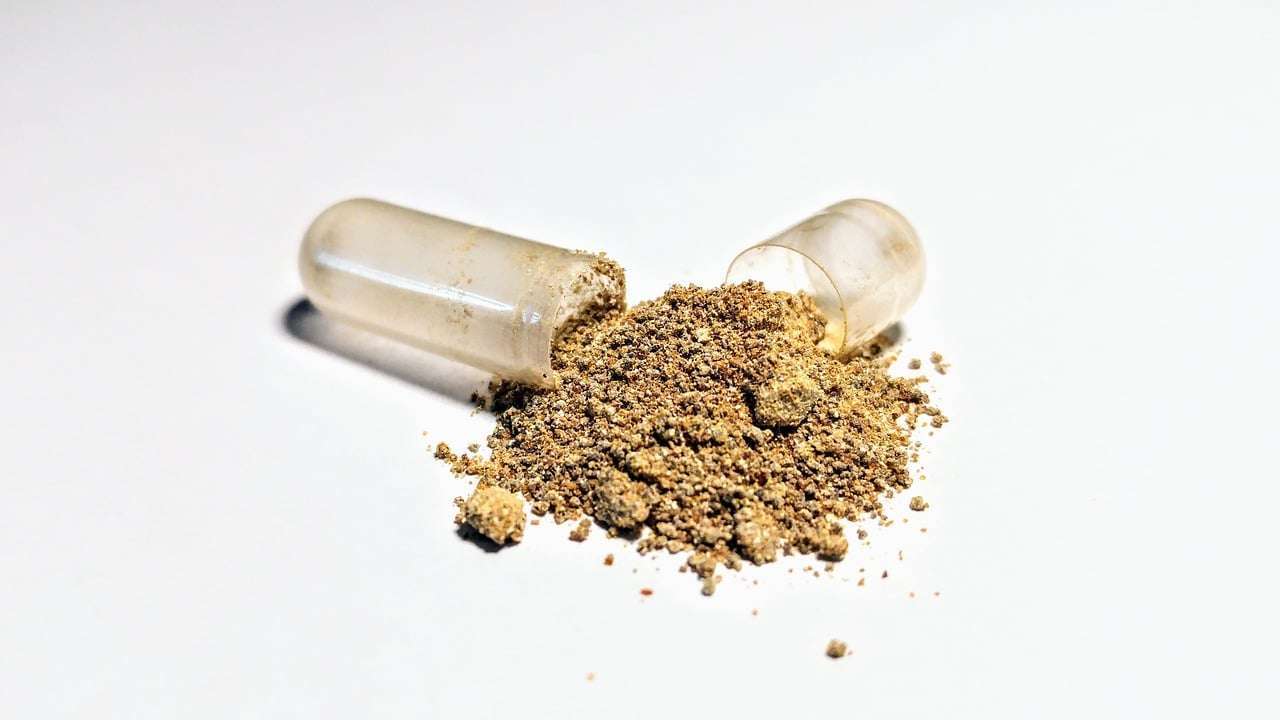
2. Anti-inflammatory: Ashwagandha contains compounds that possess anti-inflammatory properties. It may help reduce inflammation in the body, which is linked to various chronic conditions.
3. Antioxidant: This herb is rich in antioxidants that help protect the body against free radicals, which can cause cellular damage. Ashwagandha's antioxidant properties contribute to overall well-being and may support healthy aging.
Health Benefits of Ashwagandha:
1. Stress and Anxiety Relief: Ashwagandha has been traditionally used to reduce stress and anxiety. It may help lower cortisol levels, a hormone associated with stress, and promote a sense of calmness and relaxation.
2. Improved Sleep Quality: Ashwagandha has been shown to have a positive impact on sleep quality. It may help regulate sleep patterns, promote restful sleep, and alleviate insomnia symptoms.
3. Enhanced Cognitive Function: Studies suggest that ashwagandha may support cognitive function, including memory, focus, and attention span. It may also have neuroprotective properties, potentially benefiting brain health.
4. Boosted Immune System: Ashwagandha has immune-modulating properties, meaning it helps regulate immune system activity. It may enhance immune response, strengthen the body's defense mechanisms, and promote overall wellness.
5. Energy and Vitality: Ashwagandha is believed to increase energy levels and improve overall vitality. It may help combat fatigue, boost stamina, and support physical performance.
Ashwagandha is a remarkable herb with a wide range of properties and health benefits. From stress relief and improved sleep quality to enhanced cognitive function and immune support, this ancient herb offers a holistic approach to well-being. As with any supplement or herb, it's important to consult with a healthcare professional before incorporating ashwagandha into your routine. Embrace the power of ashwagandha and experience its potential benefits for yourself!

Unveiling the Wonders of Rosemary: A Herb with Remarkable Properties and Health Benefits.
Rosemary, with its distinct aroma and delicate leaves, is not just a culinary delight but also a herb with numerous properties and health benefits. This versatile herb has been cherished for centuries and continues to captivate us with its remarkable qualities. Let's explore the wonders of rosemary and discover how it can enhance our well-being.
Properties of Rosemary:
Rosemary is rich in essential oils, antioxidants, and other beneficial compounds that contribute to its unique properties. Its leaves contain rosmarinic acid, which possesses anti-inflammatory and antioxidant effects. Additionally, rosemary is a good source of vitamins and minerals, including vitamin C, vitamin A, calcium, and iron.
Health Benefits of Rosemary:
1. Boosts Cognitive Function: Rosemary has been associated with improved memory and concentration. Its aroma is believed to stimulate the brain, enhancing mental clarity and focus. Incorporating rosemary into your daily routine, whether through cooking or aromatherapy, may help sharpen your cognitive abilities.
2. Supports Digestive Health: The essential oils found in rosemary have been traditionally used to aid digestion. Rosemary can help alleviate indigestion, bloating, and stomach cramps. It may also stimulate the production of bile, promoting healthy digestion and nutrient absorption.
3. Enhances Immune System: The antioxidants present in rosemary, such as rosmarinic acid and carnosic acid, help strengthen the immune system. These compounds protect the body against free radicals, reducing oxidative stress and supporting overall immune function.
4. Promotes Hair and Scalp Health: Rosemary has long been recognized for its benefits to hair and scalp. It can help stimulate hair growth, prevent dandruff, and improve scalp circulation. Incorporating rosemary-infused hair products or using rosemary essential oil in your hair care routine may contribute to healthier and more vibrant locks.
5. Supports Respiratory Health: The aromatic compounds in rosemary, when inhaled, can help alleviate respiratory issues such as congestion, coughs, and cold symptoms. Rosemary tea or steam inhalation with rosemary essential oil may provide relief and promote clearer breathing.
Rosemary is truly a herb with remarkable properties and health benefits. From its cognitive-boosting effects to its digestive support and immune-boosting properties, rosemary has much to offer. Whether you incorporate it into your cooking, enjoy its fragrance through aromatherapy, or explore its potential in natural remedies, rosemary is a valuable addition to a healthy lifestyle. Embrace the wonders of rosemary and experience its many benefits firsthand.
Remember, it's always advisable to consult with a healthcare professional before making any significant changes to your diet or lifestyle
Discover the Hidden Treasure: Apricot Seed Oil and Its Health Benefits.
Apricot seed oil, derived from the kernels of apricots, is a hidden gem in the world of natural oils. Packed with essential nutrients and unique properties, this oil offers a range of health benefits that are worth exploring. In this article, we will delve into the properties and health benefits of apricot seed oil.
Properties of Apricot Seed Oil:
Apricot seed oil is rich in vitamins A, C, and E, as well as fatty acids like oleic and linoleic acid. It is a lightweight, non-greasy oil that is easily absorbed by the skin. This oil also contains antioxidants, which help protect the skin from free radicals and environmental damage.
Health Benefits of Apricot Seed Oil:
1. Nourishes and Moisturizes the Skin:
Apricot seed oil is an excellent moisturizer that helps hydrate and nourish the skin. Its lightweight texture makes it suitable for all skin types, including oily and acne-prone skin. Regular use of apricot seed oil can help improve skin elasticity, leaving it soft, supple, and radiant.

2. Soothes Inflammation and Irritation:
The anti-inflammatory properties of apricot seed oil make it beneficial for soothing skin conditions such as eczema, psoriasis, and dermatitis. It helps reduce redness, itching, and irritation, providing relief to the affected areas.
3. Promotes Hair and Scalp Health:
Apricot seed oil can be a great addition to your hair care routine. It helps moisturize the scalp, reducing dryness and flakiness. The nourishing properties of this oil also promote hair growth, strengthen the hair follicles, and add shine to dull and damaged hair.
4. Supports Heart Health:
The high content of monounsaturated fatty acids in apricot seed oil can contribute to heart health. These healthy fats help lower bad cholesterol levels and reduce the risk of cardiovascular diseases when consumed as part of a balanced diet.
Apricot seed oil is a versatile and beneficial oil that offers numerous health benefits for the skin, hair, and overall well-being. Its nourishing and moisturizing properties, along with its ability to soothe inflammation, make it a valuable addition to your beauty and wellness routine. Consider incorporating apricot seed oil into your daily regimen and experience the wonders it can do for your health.
Remember, it's always advisable to consult with a healthcare professional or dermatologist before using any new product, especially if you have specific skin concerns or allergies.

Exploring the Properties and Health Benefits of Licorice.
Licorice, scientifically known as Glycyrrhiza glabra is a herbaceous plant native to the Mediterranean and parts of Asia. With its distinct sweet flavor and numerous health benefits, licorice has been used for centuries in traditional medicine and culinary practices. Let's delve into the properties and health benefits of this remarkable herb.
Properties:
Licorice contains a compound called glycyrrhizin, which is responsible for its characteristic sweetness. Additionally, it contains flavonoids, coumarins, and other bioactive compounds that contribute to its medicinal properties. Licorice is available in various forms, including dried roots, powders, extracts, and teas.
Health Benefits:
1. Soothes Digestive Issues: Licorice has been traditionally used to alleviate digestive discomforts such as heartburn, indigestion, and stomach ulcers. It possesses anti-inflammatory properties that can help reduce inflammation in the digestive tract and promote healing.
2. Supports Respiratory Health: Licorice has expectorant properties, making it beneficial for respiratory conditions like coughs, colds, and bronchitis. It helps to loosen mucus and soothe irritated airways, providing relief from respiratory symptoms.
3. Anti-inflammatory Effects: The bioactive compounds in licorice exhibit anti-inflammatory properties, which may help reduce inflammation in the body. This makes it potentially useful in managing conditions like arthritis, eczema, and certain autoimmune disorders.
4. Immune System Support: Licorice contains compounds that have been shown to enhance immune function. It may help stimulate the production of immune cells, providing a boost to the body's defense against infections and diseases.
5. Hormonal Balance: Licorice has been used traditionally to support hormonal balance, particularly in women. It may help alleviate symptoms associated with hormonal imbalances, such as menstrual cramps and menopausal symptoms.
Licorice is a versatile herb with a range of properties and health benefits. From soothing digestive issues to supporting respiratory health and promoting hormonal balance, licorice has been valued for its medicinal properties for centuries. However, it's important to note that licorice should be consumed in moderation, as excessive intake may lead to certain side effects. As with any herbal remedy, it's advisable to consult with a healthcare professional before incorporating licorice into your routine.